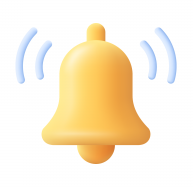
PHARMACOLOGICAL TREATMENT OF NEGATIVE SYMPTOMS IN SCHIZOPHRENIA
In this section
There are various definitions of negative symptoms in schizophrenia, and depending on how we define it, the efficacy of the same treatment varies – introduced the focus of his presentation Professor István Bitter.
In studies investigating the treatment of general negative symptoms, data is lumped together on both primary and secondary negative symptoms, and sometimes even cognitive symptoms are considered part of the negative symptom domain – explained Prof. Bitter. A large meta-analysis looked at negative symptom alleviation as measured on the Clinical Global Impression Severity Scale.1 Results revealed that most treatments were not clinically meaningful in reducing negative symptoms, including first-generation antipsychotics (FGA) and brain stimulation.1 However, Prof. Bitter explained that these findings should be evaluated with caution, as different subpopulations were merged, highlighting the need for separating negative symptom populations into: primary (persistent/predominant) and secondary negative symptoms.1
Treatment of secondary negative symptoms
In contrast to primary negative symptoms that are thought to be intrinsic to schizophrenia, secondary negative symptoms are caused by other factors, like positive symptoms, depression/depressive symptoms or side-effects of treatment (e.g., neurological or extrapyramidal symptoms, sedation).2 To date, data is lacking on the identification and treatment of secondary negative symptoms, however, there are a lot of “common-sense” advises in textbooks and a few papers – said Prof. Bitter.
Positive symptoms: If negative symptoms decrease with the improvement of positive symptoms, we can assume that negative symptoms were secondary to positive symptoms; therefore, there is no need to treat negative symptoms separately, as they would improve with an efficacious antipsychotic medication, preferably with a second-generation antipsychotic.3
Depression: Since there are no specific studies examining depression that is assumed to be secondary to schizophrenia, we need to look at studies on depression in schizophrenia – said Prof. Bitter. A systematic review and meta-analysis colluded 19 studies, most of which used selective serotonin reuptake inhibitors and tricyclic antidepressants.4 It was found that antidepressants may be effective in the treatment of depression in schizophrenia, however, results are mixed.4 Discrepancy between studies could be due to incorrectly selected populations – explained Prof. Bitter -, highlighting the need for larger and longer studies.4
Side-effects of medication: Similarly, no specific studies have examined the treatment of medication side-effects assumed to be secondary to schizophrenia, so the review of pharmacological treatments is suggested. When medication side-effects – which are thought to cause secondary negative symptoms – arise, lowering the dose or the number of APs used or switching to another AP or other medication should be considered.5
Treatment of persistent and/or predominant negative symptoms
Prof. Bitter presented a proposal of a clinical algorithm looking at the treatment of persistent and/or predominant negative symptoms.6 Firstly, the FGA should be changed to a second-generation AP if deemed necessary; in case of inadequate improvement, cariprazine 3-6 mg/day should be taken.6 If there is poor efficacy or side-effects arise, amisulpride 50-300 mg/day is advised; in case of poor efficacy or side-effects, quetiapine or olanzapine is recommended.6 Lastly, if quetiapine/olanzapine proves to be ineffective or side-effects are present, antidepressants should be considered as an add-on treatment.6 However, there is only a very low number of patients who improve or respond to the combination of an AP and an antidepressant, and there are no biomarkers or other predictors to identify those patients who would improve or respond – added Prof. Bitter.
To conclude his presentation, Prof. Bitter highlighted a few key-points regarding the pharmacological treatment of negative symptoms in schizophrenia: only APs and antidepressants have a reliable evidence-base for recommending their use; amisulpride outperformed placebo in the treatment of predominant negative symptoms, however, in a direct comparison of APs, no significant difference was found between amisulpride and olanzapine; cariprazine is the only AP that was found to be superior to another AP, risperidone, in the treatment of predominant negative symptoms.7
Summary
COD. 300021/R60. Submitted to AIFA on 26/10/2021
References
- Fusar-Poli, P. et al. Treatments of Negative Symptoms in Schizophrenia: Meta-Analysis of 168 Randomized Placebo-Controlled Trials. Schizophr. Bull. 41, 892–899 (2015).
- Bitter, I. Definitions and measurement of negative symptoms in schizophrenia. in Managing Negative Symptoms of Schizophrenia 1–18 (2020). doi:10.1093/med/9780198840121.003.0001.
- Sarkar, S. Conceptualization and treatment of negative symptoms in schizophrenia. World J. Psychiatry 5, 352 (2015).
- Gregory, A., Mallikarjun, P. & Upthegrove, R. Treatment of depression in schizophrenia: systematic review and meta-analysis. Br. J. Psychiatry 211, 198–204 (2017).
- Kirschner, M., Aleman, A. & Kaiser, S. Secondary negative symptoms — A review of mechanisms, assessment and treatment. Schizophrenia Research (2017) doi:10.1016/j.schres.2016.05.003.
- Cerveri, G., Gesi, C. & Mencacci, C. Pharmacological treatment of negative symptoms in schizophrenia: update and proposal of a clinical algorithm. Neuropsychiatr. Dis. Treat. 15, 1525–1535 (2019).
- Czobor, P. & Bitter, I. Pharmacologic treatment of negative symptoms: Focus on efficacy. in Managing Negative Symptoms of Schizophrenia 67–86 (2020). doi:10.1093/med/9780198840121.001.0001.
STARTING DOSES FOR OUR PRODUCT
Find out more about the starting doses from first episode to relapse
more…PATIENTS WITH NEGATIVE SYMPTOMS
Negative symptoms refer to a loss of patient functioning, constituted by 5 constructs, known as the 5As: alogia, blunted affect, anhedonia, avolition, and asoci
more…

